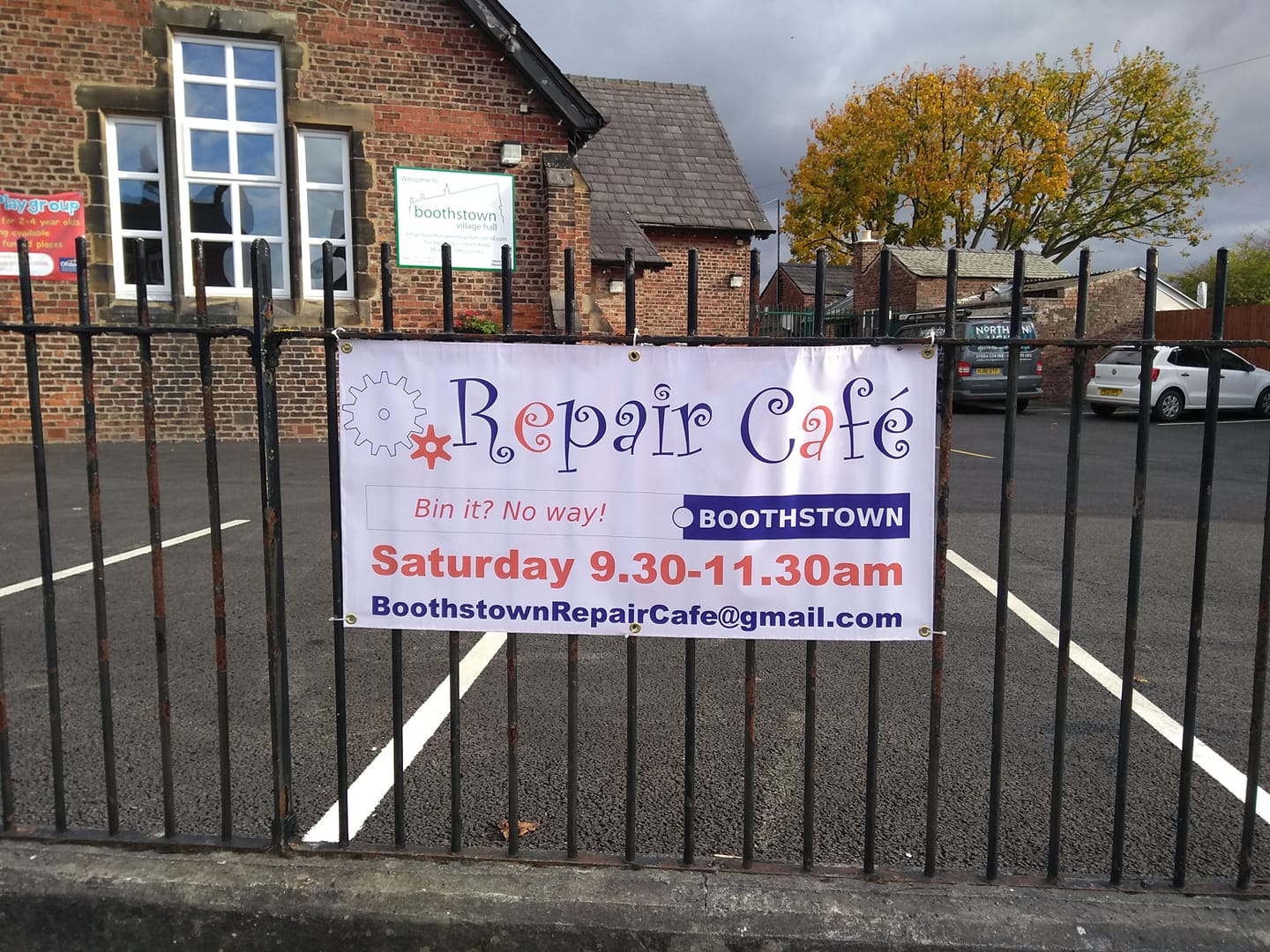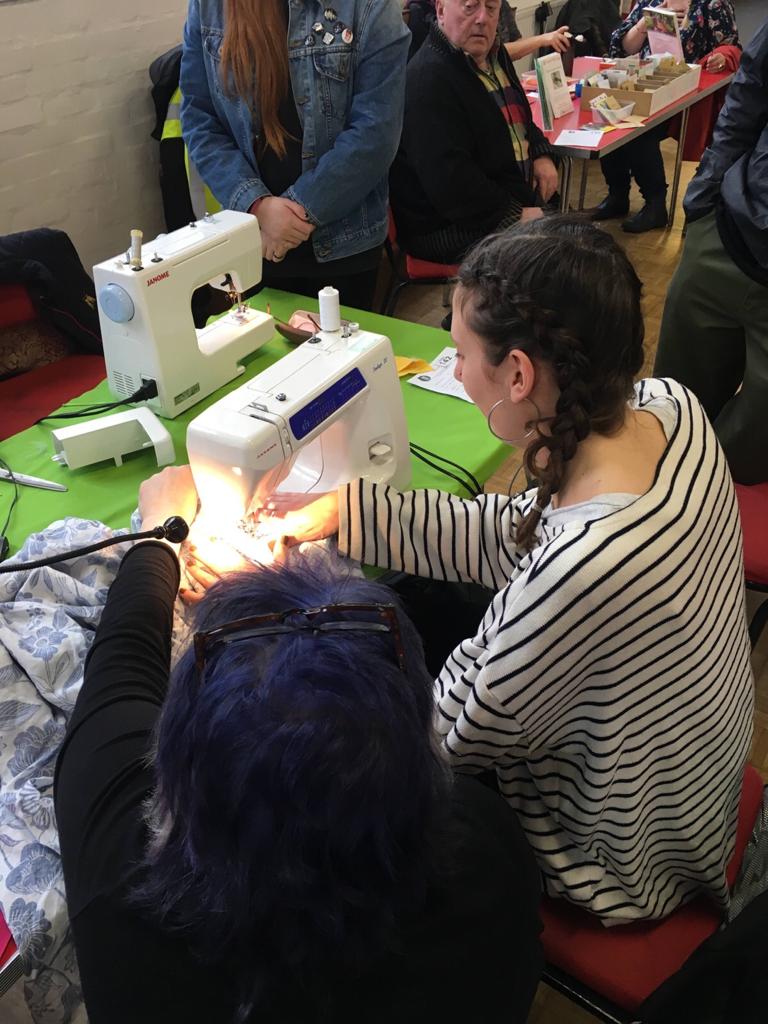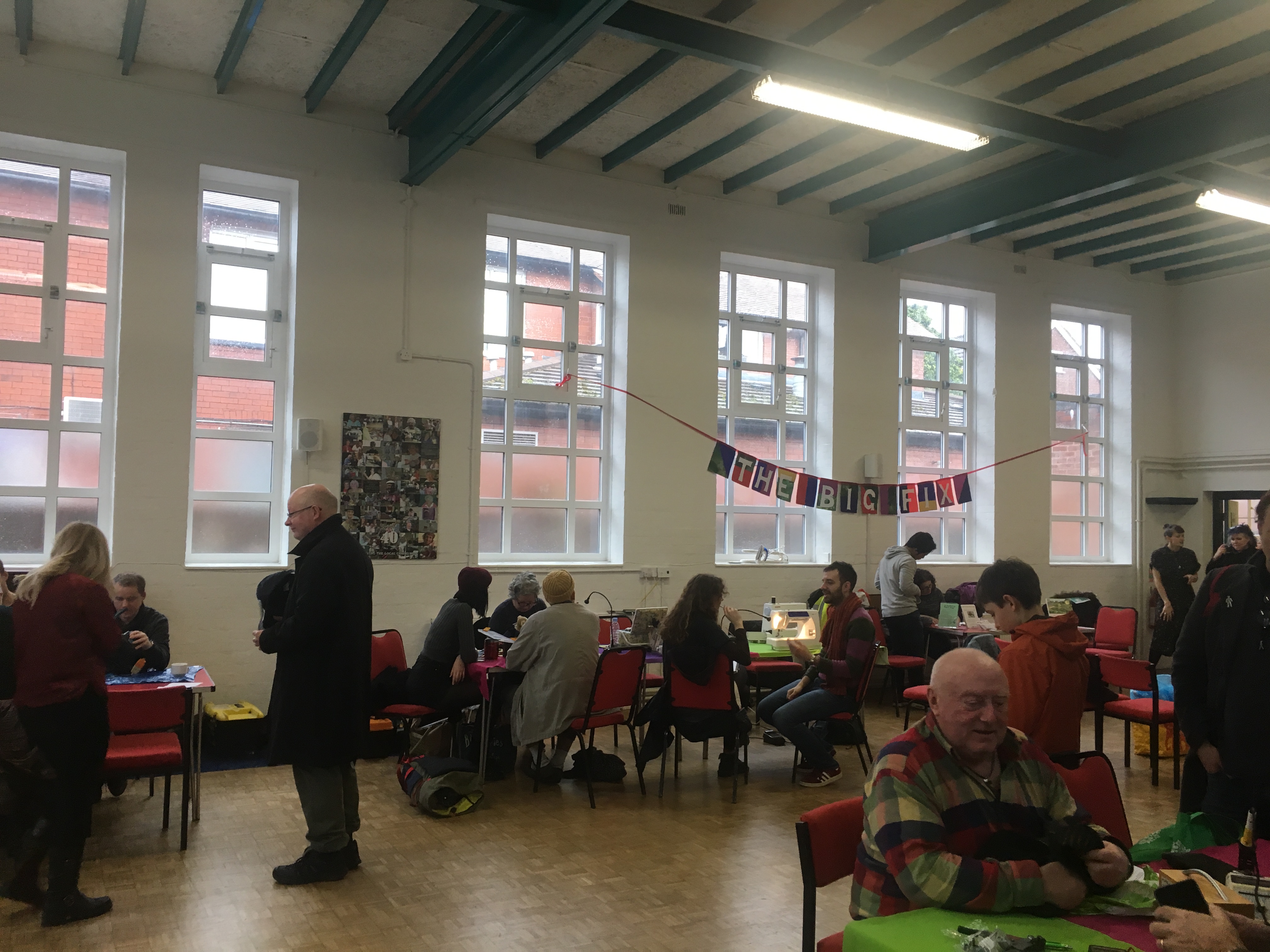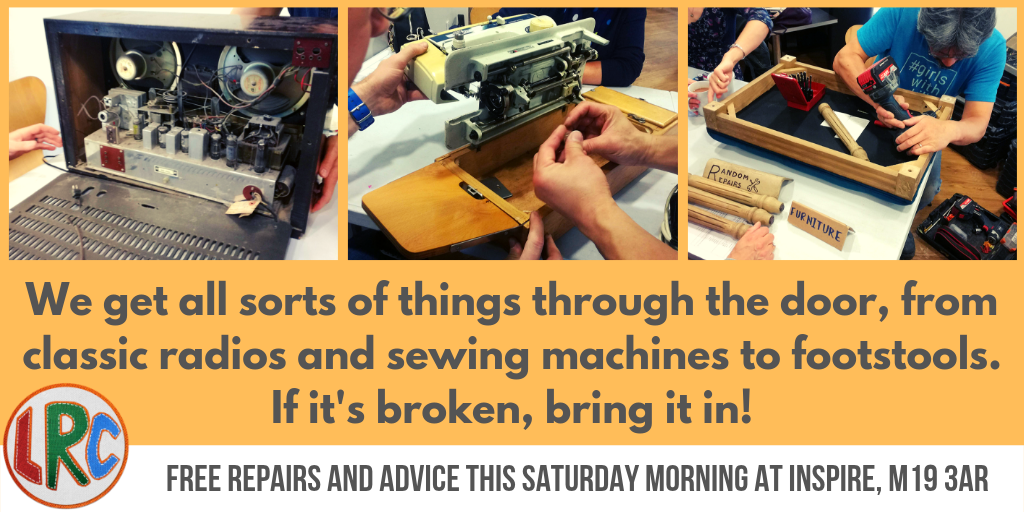The repair café: what can we learn from it?
Posted on 17 Mar 2021 Categories: Blog, Local initiatives, Wellbeing
by Ellen Bassam
Covid-19 has brought about a renewed interest in the community – of which the repair café is increasingly a part. With few other places to go, our immediate surroundings have become not only places to exercise, explore and enjoy, but also places where we can help out and make a difference to those who are struggling. The community has demonstrated its ability to serve the interests and needs of its members, with unique knowledge and insights proving the key to effective Covid testing and food parcel delivery.
As eyes start to look towards the recovery phase of the pandemic, it’s important to understand how we can continue to draw on the community – not only to deal with post-Covid challenges, but also in tackling the many other mounting issues society faces such as the inextricably linked climate crisis and rising inequality. Solutions appear in many shapes and sizes, but sometimes they involve a re-imagining and adapting of age-old practices.
One approach to repairing our society is to embrace the physical act of repairing. No longer should it be classed as a dying art, but as a way of changing consumption practices in the West – which, frankly, has enough ‘stuff’ already.

Enter the repair café
Casting back to a pre-lockdown era, repair cafés were a growing trend. Established in 2009 by Martine Potsma, a repair café is a monthly event in which a group of volunteers with differing skills set up shop in their locality, and people can come and have household items repaired, free of charge. There are over 2,000 globally and 125 in the UK, a number that doubled from 2019 to 2020.
Repair cafés in Greater Manchester

After attending a talk by Martine Potsma and visiting a repair café myself, I was inspired to write my masters thesis on the topic. I researched the role they could play in Greater Manchester, a city with big environmental goals. The aim is to redress inequality through the environmental work, but with a less clear idea on how this can be achieved. There are four (soon to be five) repair cafés in Greater Manchester, occurring monthly across different neighbourhoods. I focused my research on three; Levenshulme, Moss Side and Boothstown, each with a unique demographic. Levenshulme and Boothstown were established by motivated individuals wanting to contribute to their local area, whereas the Moss Side repair café is run by a local organisation called Sow the City, which facilitates various community initiatives.
Visitors roll in to the repair cafés throughout the morning and wait patiently for a repairer to become available, chatting with other visitors as they wait. A majority of the voluntary repairers are dedicated hobbyists with a strong environmental conscience. At the cafés, they are stationed around the venue divided into the different skillsets, from sewing and electronics to bike repairs. There is a warm atmosphere and an enthusiastic buzz, as each item presented brings a new challenge. When I attended, I worked with a repairer to mend a torn duvet cover, and learned little tips along the way as she guided me through the process. No two repair cafés are ever the same, but they broadly follow the same structure, allowing visitors to bring back to life old items and learn new skills.

My research findings
My research uncovered three interrelated themes of repair cafés: environmentalism, social capital and wellbeing. Developing a greater understanding of these areas, and how they are linked, can lead to the development of practical solutions to meet environmental targets. This can then be used as part of an approach to policymaking that centres on tackling inequality, rather than seeing it as an afterthought.
The environmental benefits of the repair café
There are three main environmental functions of repair cafés: challenging planned obsolescence, reducing waste, and promoting sustainable behaviours. Planned obsolescence is a growing problem whereby products are increasingly designed to fail or die after a certain period of time. Given the range of products brought to repair cafés, repairers have unique knowledge on this issue, and a clear idea who the main offenders are. The Government’s Environmental Audit Committee recently sought evidence from repair café volunteers on waste management and repairability, demonstrating the utility of repair café knowledge.
By fixing household goods otherwise destined for landfill, repair cafés also play a vital role in reducing waste and CO2 emissions. A global survey of repair cafés states that three in five items brought to repair cafés are successfully repaired. Some cafés have even started using a carbon calculator to track this more accurately, and using 3D printers to create spare parts. Fix by fix, this handy work claws back the mountains of waste being send to landfill.
The third environmental function, promoting sustainable behaviours, is born from the collaboration between the repairer and the visitor. Encouraging teamwork as part of the repair process means that individuals are taught the value, easiness and fun of mending. As people see this in practice, repair becomes a more viable option before recycling or throwing away, and this can help in developing long-term sustainable behaviours.
The development of social capital
This aspect of repair cafés was a key theme that emerged in my research and occurs in a number of ways. The relational aspect of social capital, which helps build norms such as reciprocity and trust, benefits society as a whole. The set-up and collaborative approach worked as a bonding mechanism for like-minded repairers and helped people integrate into the community if they were new to the area. It also worked as a bridging mechanism, reaching across sub-communities and building social cohesion. In Moss Side, for example, diverse cohorts such as the student population and the local Afro-Caribbean population, who might not otherwise interact, came together at this community event. These forms of interaction and collaboration are key to tackling deprivation, as they help build collective intelligence and resilience. If you understand someone’s struggles, you may be more willing to give them a hand.
The unique community links of repair cafés means they can play a role in tackling deprivation beyond the repair café. In Levenshulme, the repair café donated its saved contributions to Levinspire (the community space that hosts it) during the first Covid-19 lockdown, highlighting the value of intra-community links. Equally, repairers at the Moss Side repair café help out at other community events run by Sow the City, becoming part of a ‘social scaffolding’ of community work. The fact these events are all free of charge opens new opportunities for those who might otherwise be unable to afford to go to them.

Wellbeing
Repair cafés also promote wellbeing, something local authorities are keen to bring into their own environmental planning. Volunteering has been proved to improve mental health in itself. With repair cafés, fixing household goods can help counter long-term environmental angst in addition to the immediate tangible benefits. Repairers develop their own skills and help facilitate the development of visitors’ abilities, exemplifying the power of ‘having a go’ at something yourself. This helps foster confidence for visitors to attempt repairs on their own.
The repair cafés become an informal learning space, especially useful in a time where skillsets are dying out and people are unable to easily access the repair services they might need. The focus of repair cafés on positive, practical and communal action draws newfound joy from landfill-destined junk. The quietly radical work of individuals enthusiastically plugging away at a global problem, by pulling things apart and piecing them back together again, offers a different way to do things, and the opportunity to engage in a positive approach to change.
Looking forward
Throughout the pandemic repair cafés have been doing their best to adapt, offering online tutorials while volunteers help repair laptops for children in need. Hopefully, as we transition back safely to spaces of social interaction, their ethos can become part of the blueprint to build a more holistic society.
Is there a risk that the community becomes a provider of services that should come from elsewhere? Perhaps. But, when there is an absence of support, there is at least somebody able to provide it.
Ellen Bassam wrote her MA thesis on repair cafés in Greater Manchester and is research coordinator at the Cambridge Institute for Sustainability Leadership.
Want to keep up-to-date with more articles like this? Sign up to our newsletter.
Posted on 17 Mar 2021 Categories: Blog, Local initiatives, Wellbeing
